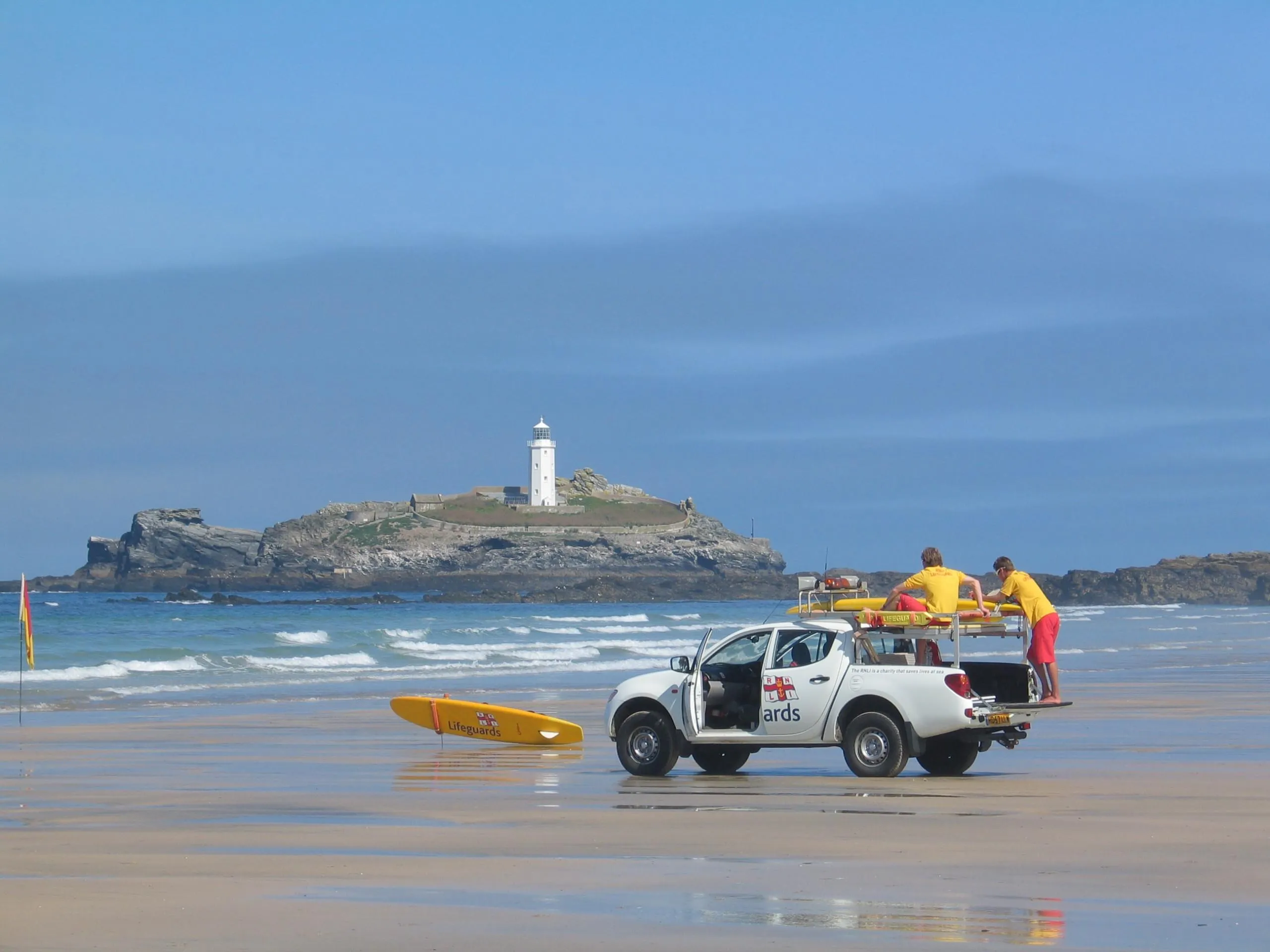If you visit a lifeguarded beach around the UK, you will have come across the different colour beach lifeguard flags that are deployed by the lifeguards for your beach safety.
What do they mean? It’s a good idea to familiarise yourself with the beach layout and the placement of these flags before jumping in the water with your surfboard or going for a swim.
Red and Yellow Flags
You will notice these flags as soon as you set foot on the beach. The red and yellow flags indicate which area of the beach the lifeguards are patrolling. This are is suitable for:
- Swimming
- Bodyboarding
- Inflatables
Black and white Chequered Flags
These beach lifeguard flags have been designated for surf craft only such as:
- Surfboards
- Kayaks
- Stand Up Paddleboards
Swimming and bodyboarding is prohibited within this area.
Red Flag
If the red flag is placed on the beach then you must not enter the water. This could be because of extreme weather patterns, an injury in the water or suspicious ordinance found in the water.
Orange Windsock
The orange windsock signifies strong offshore winds. When this is displayed, you should never use inflatables.
Beach Patrols
Beach lifeguard flags are essential for keeping beachgoers safe, and they can change throughout the day based on surf conditions, tides, and hazards. RNLI lifeguards patrol the beaches regularly, adjusting the flag placements to mark the safest zones for swimming, surfing, or bodyboarding. If you’re ever unsure where to enter the water, always check the beach lifeguard flags and speak to a lifeguard—they’re friendly, knowledgeable, and there to help.
The lifeguards understand the local environment, including rip currents, tide times, and any shifting hazards. Their guidance can make a huge difference, especially on beaches with changing conditions.
At OA Surf Club, all our Surf and Coasteering instructors are fully qualified lifeguards too. On some beaches around Bude in North Cornwall—particularly those without regular lifeguard patrols—our team’s local expertise is vital. We always assess the conditions carefully and use our knowledge to keep our groups safe. When beach lifeguard flags aren't present, it’s even more important to rely on experienced advice.






